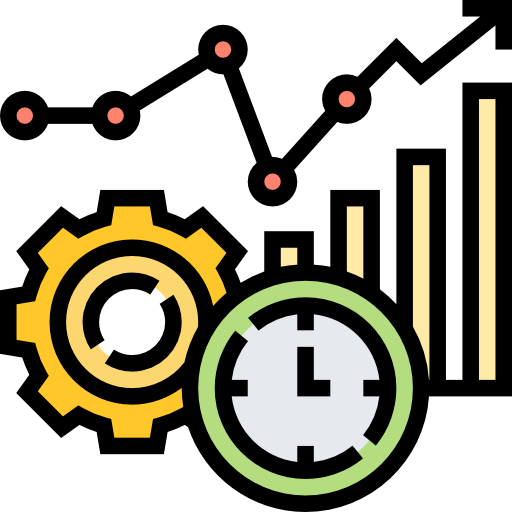End-to-end IT System Integration Services
Seamlessly connect your external, internal and legacy systems for an end-to-end holistic experience with a leading System Integration Company, Informics Digital. Our focus lies towards enabling seamless and secure experiences for your customers, employees, and stakeholders alike. Our system integration services leverage APIs, middleware, ETL processes, custom developed connectors, SOA software, EAI solutions, and more to help you integrate and harmonize IT systems. Our integration experts make data syncing and system integration possible.
Get Free Quotes
We have world-class, flexible support via live chat, email and phone. I guarantee that you’ll be able to have any issue resolved within 24 hours.
Navigate
- End-to-end IT System Integration Services
- Get Free Quotes
- Accelerate project success with our IT staff augmentation services
- Custom system integration services we offer
- Custom IT system integration services process
- The different system integration services methods we employ
- Frequently Asked Questions (FAQs)
Accelerate project success with our IT staff augmentation services
As your organization scales and grows, organically and through mergers & acquisitions, the number of tools and systems you employ also grows with it. Each system enterprises invest in serves a specific purpose. However, with time, these disparate systems grow in number and do not facilitate seamless communication or collaboration. Even if they are properly integrated, they are siloed enough to not provide a 360-degree view of data and operations. Such conditions result in employees wasting valuable time juggling between systems for a holistic view, manually syncing data and workflows, and resulting in inefficient and half-baked operations.
With Informics Digital’s system integration services, you get our deep industry expertise to scale your IT operations for today’s interconnected world. We possess decades of experience in integrating systems and technologies for streamlined processes. This also covers integrating critical data stored across legacy sources and modern systems. From consulting, planning to actual integration, security check, and critical support, our end-to-end IT system integration services implement strategies that reduce costs, enhance customer experiences, and position themselves for future growth and innovation.
Custom system integration services we offer
System integrations help you connect industry-leading tools and platforms into one functional holistic system. As a leading system integration company, Informics Digital seamlessly helps you connect different systems via native, turnkey, custom, cloud-based, middleware, data, API, on-premises and hybrid integration. With over a decade of experience in IT system integration services, we have amassed competitive expertise in system design, implementation, operations, and maintenance of different systems for several SMBs and enterprise customers.
System integration consulting
Informics Digital is a system integration company that provides consulting services to enterprises that need to facilitate a seamless connection between their operational systems and those they shall invest in the future. Our integration experts understand your business requirements and consult on the best and efficient way along with the integration approach to facilitate an efficient connection between the systems.Service oriented architecture (SOA)
Our service-oriented architecture (SOA) integration services align your business objectives with your IT environment, offering numerous advantages to your organization. These include improved data flow, flexible configuration options, rapid development of new functionalities, robust integration capabilities, and more, all contributing to enhanced operational efficiency and adaptability.Data migration
We help businesses ensure a smooth transition of data across legacy systems, databases, and modern platforms. Our system integration experts assist with extracting, transforming, and loading (ETL) data while maintaining data integrity, ensuring data accuracy, and minimizing downtime. We also assist with designing and building modern data warehouse solutions to modernize your existing systems as per business needs and evolving trends.API integration services
We offer custom API integration services to allow organizations to seamlessly connect and orchestrate various applications and data sources. You can leverage our pre-built connectors, workflows, and tools to simplify the process of creating and managing APIs. Our API integration services include REST, JSON, SML, and SOAP.IT infrastructure modernization
Our IT infrastructure modernization services within the context of system integration are designed to bring your technology environment up to date. We assess your current IT landscape, identify areas for improvement, and implement necessary changes to facilitate a seamless integration process.System integration design
We follow a strategic approach to harmonize your digital enterprise ecosystem. Our system integration consultants focus on architecturing robust and agile integration solutions that drive efficiency, innovation and competitive advantage in today’s digital landscape.System integration testing
As a leading system integration company, we offer comprehensive system integration testing services to ensure the seamless alignment of diverse IT systems. We conduct rigorous tests, validate data exchange, verify the functionality of integrated components, and ensure a reliable and well-functioning system.Custom IT system integration services process
Our first step is to analyze your business models and IT infrastructure to suggest the most reliable and effective system integration method. We ensure the seamless compatibility across all your disparate software and systems. Our system integration services include system analysis, system assessment, IT modernization, and custom software development.

Comprehensive analysis
The process begins with an extensive analysis to identify your specific business challenges. This analysis serves as the foundation for designing the integration solution, estimating project timeframes and costs, and choosing the right technology stack

Detailed assessment
Following the analysis, you receive a comprehensive documentation that includes detailed recommendations and proposed solutions. These solutions are tailored to enhance agility, reduce IT maintenance costs, and improve data quality, aligning with your business objectives

IT modernization
Informics Digital offers IT infrastructure modernization services as part of the system integration process. Their experts assess your current IT landscape and implement the necessary enhancements to ensure a smooth integration process.

Custom solution design
Their team specializes in designing custom software solutions for integration purposes. Based on your functional and non-functional requirements, they create a software requirements specification, collaborating closely with you to ensure it aligns with your goals.

Efficient integration
Informics Digital's integration services encompass a seamless connection of various IT systems. Through a combination of APIs, middleware, and other integration tools, they facilitate efficient data flow, process automation, and real-time insights

Quality Assurance
Throughout the process, quality assurance measures are implemented to ensure that the integrated systems function as intended. Rigorous testing, verification, and validation are conducted to guarantee the reliability and stability of the integrated solutions.
The different system integration services methods we employ
Native integration
This involves using the built-in or native capabilities of the software or systems to connect with other applications or services
Turnkey integration
These are pre-built or off-the-shelf integration solutions that require minimal configuration. These are typically ready-made connectors or middleware designed to connect specific applications or services.
Custom integration
Custom integration involves creating tailored solutions to connect different systems or applications that do not have native integration capabilities.
Cloud-based integration
Cloud integration platforms, such as Integration Platform as a Service (iPaaS), provide tools and services for connecting cloud-based applications and services
Middleware integration
Middleware refers to software that acts as an intermediary layer between different applications or systems, facilitating communication and data exchange.
Data integration
Data integration involves combining and transforming data from various sources to provide a unified view. Extract, Transform, Load (ETL) processes, data warehouses, and data integration platforms are common methods for data integration.
API integration
APIs are used to connect software applications and enable them to communicate and share data. API-based integration is widely used in modern software development and system integration.
On-premises integration
Some organizations prefer to keep their integration entirely within their on-premises infrastructure, using tools and technologies that do not rely on cloud-based services.
Frequently Asked Questions (FAQs)
System integration services refer to the processes and methods used to connect and unify different software applications, hardware components, data sources, and technologies within an organization. The primary goal is to ensure that these disparate systems work together seamlessly, share data, and operate as a coordinated and cohesive whole. System integration services are essential for improving operational efficiency, data accuracy, and business agility by enabling systems to communicate and work together harmoniously
System integration can take several forms to meet the specific needs of organizations. These include native integration, custom integration, middleware integration, API integration, cloud-based integration, data integration, hybrid integration, and blockchain integration.
System integration services serve applications across a variety of industries. In finance, it links accounting, payroll, and invoicing systems to maintain data flow. In healthcare, electronic health records and billing systems are connected for streamlined patient care. Manufacturing relies on integration to improve production efficiency, while supply chain integration optimizes inventory and order processing. Human resources systems are integrated for more efficient HR management. IoT integration provides real-time insights, while legacy system integration extends the functionality of older systems. Cloud application integration synchronizes software for consistent workflows. These examples highlight the broad range of system integration’s applications.
System integration consists of two main components; hardware integration that involves connecting physical hardware components like servers and sensors to enable efficient data exchange and coordination and software integration that focuses on integrating various software applications and databases, ensuring seamless data flow and process automation. These components combine to create a cohesive, well-functioning system.



